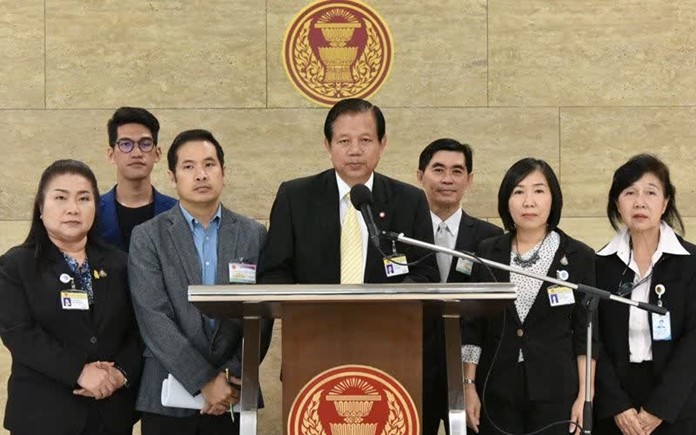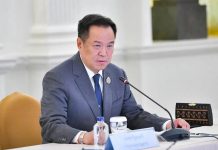
The banning of paraquat, glyphosate and chlorpyrifos was discussed at the meeting of the government’s ad hoc committee on toxic farm chemical controls yesterday. Relevant agencies were invited to the meeting to seek measures to restrict the use of these chemicals while promoting organic farming.
The chairman of the committee, Chavalit Vichayasuthi, said that, after listening to input from all concerned parties, his committee is firmly against the continued use of the chemicals and it will not propose any alternative chemicals. Chavalit said, however, his committee and other agencies will have to seek sustainable solutions for farmers. He added that organic farming should be put on the national agenda and funds should be clearly allocated to help farmers effectively.
The Director-General of the Department of Agriculture, Dr. Surmsuk Salakpetch, said she agreed with the House committee’s resolution, which supports the Ministry of Agriculture and Cooperatives’ move to promote organic farming and safe agricultural practices. It is in line with the 12th National Economic and Social Development Plan (2017-2021) and the 20-Year National Strategy. By 2022, the government aims to increase organic farming in Thailand to at least 513,000 acres.
However, various agricultural associations overseeing cash crops and the Thai Agricultural Innovation Trade Association (TAITA) said the banning of paraquat, glyphosate and chlorpyrifos, which will take effect from December 1 this year, will directly impact farmers, particularly those who produce cassava, sugarcane, oil palm and corn, because other farm chemicals cannot replace them in terms of their characteristics and price. Farmers will have to spend more because an alternative farm chemical is six times more expensive than paraquat.
Once the ban is in effect, the government will have to manage its inventory of over 40,000 tons, while the farmers have 10,000 tons. The government will also have to spend billions of baht to transport, store or destroy the banned chemicals and to compensate farmers by 500,000 baht per ton. The ban may lead to the smuggling of illegals and counterfeit agricultural products.
 |
 |
 |





